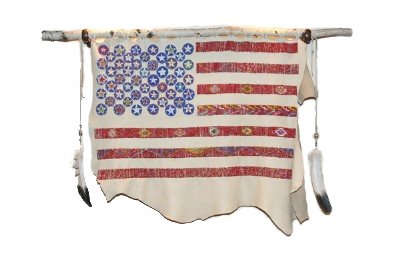Conquest by Law, by Lindsay G. Robertson
Most people with even a passing knowledge of Native American history know the story of Worcester v. Georgia, the famous Supreme Court case where Chief Justice John Marshall heroically upheld the sovereign rights of the Cherokee Nation against the State of Georgia, only to have that decision ignored by the Indian-hating, land-lusting Andrew Jackson, leading to the Trail of Tears. Few people (myself included) know that in Worcester, Marshall was trying to atone for a disastrous earlier decision, one that directly precipitated Georgia's attempt to legally erase the Cherokee Nation, and which has plagued Indian Law in America ever since: Johnson v. M'Intosh. With a novelist's flair for characters and description, Robertson (an Indian Law professor at the University of Oklahoma) describes how his discovery of old documents abandoned in an attic enabled him to unravel the complex story of how early 19th Century politics, proto-capitalist land speculators, the beginning of the State's Rights movement, and Revolutionary War veterans led to this disastrous decision and the pernicious Doctrine of Discovery, the legal principle that white people gain fee title to land inhabited by non-white people just by looking at it. Chief Justice Marshall, the original activist judge, invented the doctrine (and its spurious history) out of whole cloth to justify the results he wanted; allowing Revolutionary War veterans to have valid title to land grants they received for their service and trying to induce the State of Virginia to support the infant Supreme Court. It was not until much later that he realized what his monster had accomplished, depriving all Indians in North America of any claim to valid title in their land, reducing them to mere "occupants" of territory they had inhabited for millennia. To his credit, Marshall realized his error and tried to correct it, all but overruling M'Intosh in the Worcester decision, but by then it was far too late. All the many ethnic cleansings that followed, from the Trail of Tears to the Long Walk, to Wounded Knee, the Dawes Roll and Termination, trace their bloody ancestry to M'Intosh. The Discovery Doctrine has even been used by other nations, to justify dispossession of First Nations in Canada, African tribes on their own continent, and Australia's genocidal policy against the Aborigines. It is a sad story of the sad need of racists to somehow make their crimes seem just and right by giving them the force of law. Robertson is a very good history writer; the book flows nicely, includes intriguing sketches of the characters involved, both famous and obscure, and avoids legalistic jargon. I recommend Conquest to anyone interested in Native American history in general, and Indian law in particular.
Labels: Book Reviews


0 Comments:
Post a Comment
<< Home